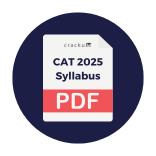Read the following passage and answer the TWO questions that follow.
But as the behavioral economists like to remind us, we are already prone to all sorts of reductions as a species. It’s not just the scientists. We compress complex reality down into abbreviated
heuristics that often work beautifully in everyday life for high-frequency, low-significance decisions. Because we are an unusually clever and self-reflective species, we long ago realized that we needed help overcoming those reductive instincts when it really matters. And so we invented a tool called storytelling. At first, some of our stories were even more reductive than the sciences would prove to be: allegories and parables and morality plays that compressed the flux of real life down to archetypal moral messages. But over time the stories grew more adept at describing the true complexity of lived experience, the whorls and the threadlike pressures. One of the crowning achievements of that growth is the realist novel. That, of course, is the latent implication of Prince Andrei’s question: “innumerable conditions made meaningful only in unpredictable moments” would fare well as a description of both War and Peace and Middlemarch, arguably the two totemic works in the realist canon. What gives the novel the grain of truth lies precisely in the way it doesn’t quite run along the expected grooves, the way it dramatizes all the forces and unpredictable variables that shape the choices humans confront at the most meaningful moments of their lives.
When we read those novels—or similarly rich biographies of historical figures—we are not just entertaining ourselves; we are also rehearsing for our own real-world experiences….
The main essence of the text can be understood from the lines: "Because we are an unusually clever and self-reflective species, we long ago realized that we needed help overcoming those reductive instincts when it really matters. And so we invented a tool called storytelling. "
This suggests that while reduction might be helpful in some places, in more complex and relevant situations, we need to look for detail, hence the invention of storytelling.
Looking at the options:
(A) This statement is extreme; while the reductive instincts are implied to simplify a complex situation, this is neither the main point nor does it apply to everything.
(B) This option suggests humans overcoming their reductive instincts after the invention of storytelling, although nothing of the sort has been mentioned in the text.
(C) While true, the text's main focus is on where the reductive instincts are harmful rather than pointing out its benefits in moments of "uncertainty"
(D)This comes closest to capturing the main idea that there was a need to do away with this instinct of reducing everything into a simplistic context.
(E) This also is somewhat true, but the passage isn't about how reductive instinct has led to the compression of stories into fables and how storytelling keeps away the reductive instinct.
Therefore, Option D is the correct answer.
Create a FREE account and get:
- All Quant Formulas and shortcuts PDF
- 15 XAT previous papers with solutions PDF
- XAT Trial Classes for FREE




